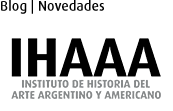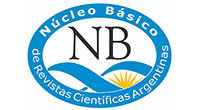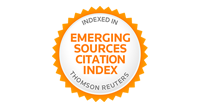The private as public. Yrurtia and Correa Morales in Ruiz de Olanos’s documental fund
Keywords:
Private archive, cataloging, Argentine art, Rogelio Yrurtia, Lía Correa MoralesAbstract
This article aims to present the research progress carried out by the Instituto de Investigaciones sobre el Patrimonio Cultural tarea, Universidad Nacional de San Martín. It examines the documents of Irene Ruiz de Olano, a private archive that belonged to the sculptor Rogelio Yrurtia and his wife, the artist Lía Correa Morales. It covers the period from 1900 to 1971 and includes various materials, from letters and official contracts concerning sculptural commissions to small fragments of unrelated papers. Progress in archival material about the organization and retention of documents are presented. Finally, a case about source availability for research is analyzed, taking the example of Las Pecadoras, a sculptural group exhibited by Yrurtia around 1903 in Paris.Downloads
Downloads
Published
How to Cite
Issue
Section
License
According to these terms, the material can be copied and redistributed by any means or in any format as long as a) the author and original source of the publication are quoted (magazine and URL of the work), access to the license is provided and whether changes have been made is mentioned; and b) the material is not used for commercial purposes.
The cession of non-exclusive rights means that after the publication (post print) in Boletín de Arte the authors can publish their work in any language, means and format; in such cases it must be mentioned that the material was originally published in this magazine.
Such cession also means the authorization of the authors for the work to be collected by SEDICI, the institutional archive of the National University of La Plata, and to be spread in the databases that the editorial team considers appropriate to increase the visibility of the publication and its authors.
Moreover, the magazine encourages the authors to deposit their productions in other institutional and thematic archives under the principle that offering the society the scientific and academic production without any restrictions contributes to a greater exchange of the global knowledge.
































